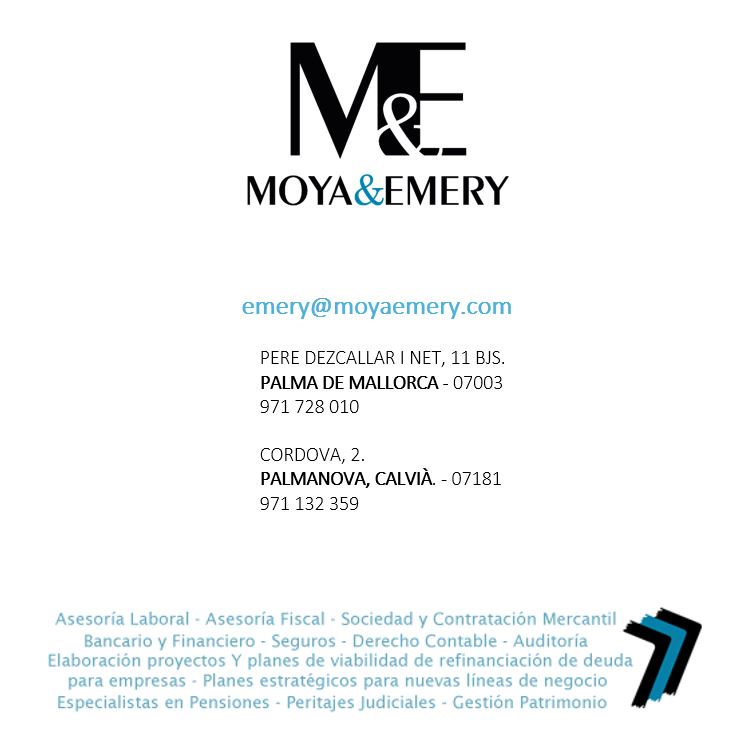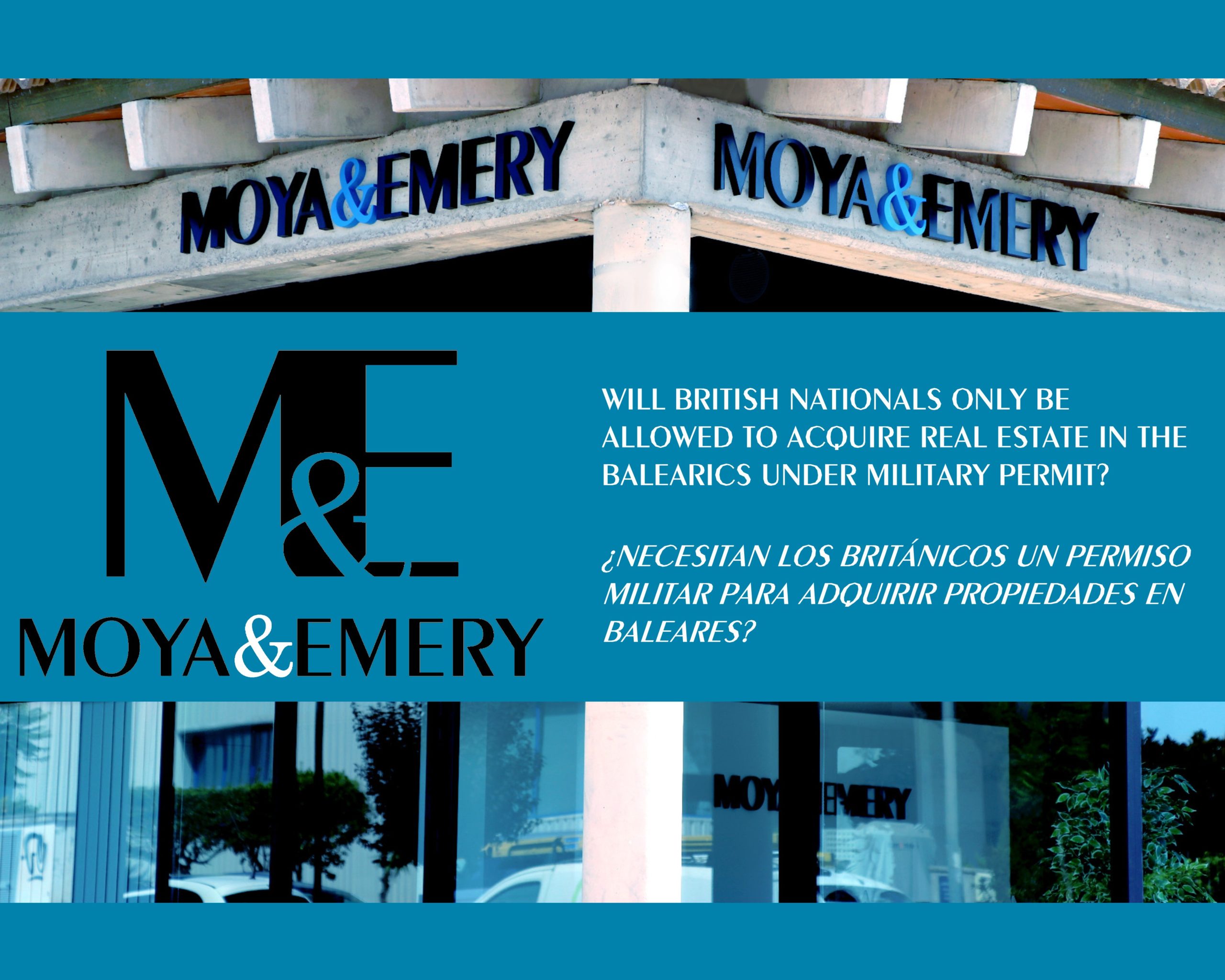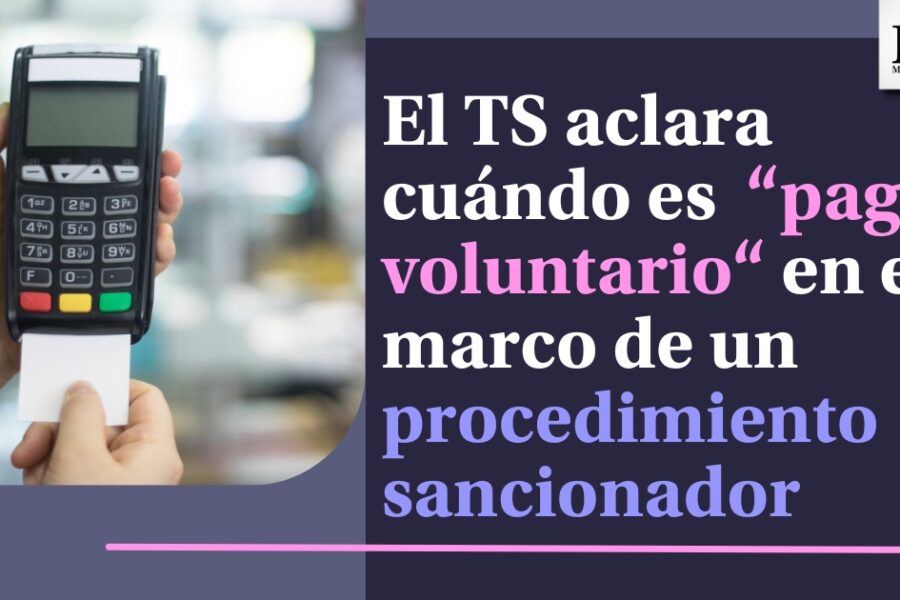Real estate investments by British in the Balearics after Brexit
Since the United Kingdom left the European Union, the media filled their front pages with the following headline: The British will only be allowed to acquire property in the Balearics under military permit.
Although the abovementioned statement is true, it is not accurate. Pursuant to the Spanish Law 8/1975, of 12 March 1975, on areas and facilities of interest to the National Defence (hereinafter, the “Law”), in order to safeguard the interests of the National Defence and the security and effectiveness of its organisations and facilities, there are certain areas to which non-EU foreigners have restricted access to ownership.
The regulation implementing this law defines these areas as: islands, Cartagena, the Strait of Gibraltar, the Bay of Cadiz, the border area with Portugal, Galicia, the border area with France and the Spanish territories of North Africa.
In accordance with the Law and its implementing regulation, non-EU foreigners willing to acquire real estate in the areas described below are subject to the requirement of military authorisation. In addition, military authorisation will be required for Spanish companies when their share capital is owned by foreign individuals or legal entities in a proportion of more than 50 per cent, or when, even if this is not the case, the non-EU foreign shareholders have a situation of dominance or prevalence in the company, derived from any circumstance that makes it possible to prove the existence of a decisive influence by them in the management of the company.
Therefore, and contrarily to what might be thought, this restriction cannot be circumvented by the mere incorporation of one or more Spanish and/or foreign companies when their ultimate beneficial owners are, de facto, British.
As per the military authorisation, the applications for the acquisition of estates not exceeding 2,000 square metres in area, their granting will fall to the relevant General Captaincy; however, when it comes to estates exceeding 2,000 square metres in area, the application must be addressed to and will be processed by the Ministry of Defence.
In any case, it should be noted that both regulations provide for an exception to the above restriction. Military authorisation will not be required in the area occupied by existing urban centres or their existing built-up or expansion areas.
Hence, although this restriction affects the whole of the Balearic Islands (Mallorca, Menorca, Ibiza and Formentera), an exception is made, and therefore military authorisation will not be required, when non-EU foreigners acquire property in urban centres and built-up areas. In other words, the permit will only be required when British nationals intend to acquire property on rural land.
At this point, it is convenient to highlight the residence status in Spain that applies to them after the Brexit. Unless they apply for temporary or, where appropriate, permanent residence, British nationals must comply with the entry requirements established in the Schengen Borders Code, which allows them to stay in Spain for 90 days per 180-day period, either on one or several visits, and in which case they must identify themselves with their passport and will be exempt from visa requirements.
As an alternative, a few years ago the Spanish government introduced a special visa to attract foreign investment, which is commonly known as “Golden Visa”. Thus, the Golden Visa is a type of residence visa, suitable for non-EU citizens who undertake a real estate investment in Spain equal to or greater than € 500,000 free of charges or encumbrances, i.e. without mortgaging the property to be acquired. This visa allows both residing and working in Spain and has an initial duration of two years, which can be extended for another two. Moreover, it is possible to extend the visa to the spouse and children under 18 years of age, or children of full age who are objectively incapable of providing for their own needs.
Notwithstanding the above, British nationals may apply for temporary or permanent residence in Spain through the standard procedure. However, it should be borne in mind that, if so, their tax status would be affected, as they would be considered tax residents in Spain and, consequently, would be taxed on certain income in that country. Nevertheless, it should be noted that during their first years of residence in Spain they could benefit from the tax regulations known as the «Beckham Law», which allows foreigners who move to Spain to be taxed as non-residents for a certain limited number of years.
Anyway, and going back to the subject matter, it is likely that the above-mentioned military regulation applies only for a limited period of time. Currently, citizens of countries that do not belong to the European Union but belong to the countries of the Single European Space or assimilated (Schengen Area), i.e. Iceland, Norway and Switzerland, are fully equated to nationals of EU countries and, accordingly, exempt from the need for military authorisation. It is therefore to be hoped that, in the not-too-distant future, the Spanish government will extend this status to the British and this obsolete regime of restricted access can be forgotten, at least as far as the British are concerned.
Marta Marina
Lawyer specializaing in commercial law and real estate law

#moyaemery #lawyers #solicitors #majorca #mallorca #balearics #baleares #property #properties #purchase #buy #Spain #British #Brexit



